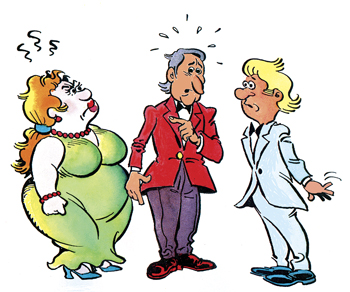phobo-, phob-, -phobia, -phobias, -phobe, -phobiac, -phobist, -phobic, -phobism, -phobous
(Greek: fear, extreme fear of; morbid, excessive, irrational fear, or terror of something or someone; however, sometimes this Greek element also means a strong dislike, dread, or hatred for something or someone)
For more details about the various phobias, visit this Phobias Introduction page to see Phobia Variations Defined and Explained.
There are only two forces that unite men: fear and self-interest.
An excessive concern and animosity about dust: People who have koniophobia also dread germs and keep their homes and cars exceedingly clean from grime, grit, rubbish, trash, and interplanetary material.
A dread of being mentally or physically exhausted: Henry has kopophobia sometimes when he goes to the fitness studio, because he simply strains himself too much and, because of his physical weakness, he often ends up with a feeling of fainting and being powerless, or having a lack of control.
A panic regarding waves that may be related to a fear of motion, water, or of landscapes in which water flows or waterfalls are prominent: Whenever Debbie went to the beach or was near a cascade or river, her kymophobia completely diminished any possible pleasure from seeing them or being near them.
An excessive dread of stooping or of becoming stooped: The elderly Mr. Smith, suffering from a kyphophobia, avoided bending down at all because he was afraid of falling, which could cause an injury or even dizziness.
An intense anxiety about vegetables: Being affected with a lachanophobia, Jane loved meat and fruit, but avoided carrots, broccoli, peas, etc. because she thought they had grown in contaminated ground and had insects on them!
An abnormal dread of talking and speaking: Timmy suffered from a laliophobia because he was so afraid of forgetting what he wanted to say, and of stuttering or fumbling over his words.
An individual's difficulty in verbal communication may be aggravated by situations that arise from anxieties or fears of self-consciousness.
lalophobic (noun), lalophobics (pl)
A person who accidentally says something which he or she didn't mean to say: Mr. Smithson's wife described her husband as being a lalophobic when he introduced her as being his sister!

Larry, this is Fattie; I mean, Hattie!

This picture illustrates a lalophobic who has a good reason to know that he has said the wrong thing about another person.
An intense panic about the possibility of being burglarized at home or embezzled in public: Those who have latrophobias are known to take extreme measures to protect themselves from being robbed, including multiple locks and other devices on their doors and windows or carrying small amounts of money hidden in their jackets or coats when they go out in public.
An excessive dread of leprosy: After reading about Hansen's disease, a chronic and contagious disease caused by a bacteria,
and seeing some photos of people who were disfigured by it, Janet was terribly afflicted with lepraphobia and went to see her doctor about it.
An abnormal anxiety of forgetting or of being forgotten: Sam developed letholphobia and slid into oblivion after spending three weeks in the hospital when no one came by to visit him!
An extreme dread of the color white: For some people suffering from leukophobia, paleness may represent ill health or even ghosts to those who fear the supernatural, or they avoid having anything very pale in their homes.
An excessive horror of objects on the left side of the body: Afflicted with levophobia, Toby always had to position items on the right side, because otherwise they were just too out of place for him, so he straightened up everything before leaving the house in the morning.
A dread of sharp or loud noises: Because of his ligyrophobia, Jack always wanted to have the volume of the CD player turned way down first before turning it on.
An exaggerated terror of tornadoes or hurricanes: Individuals who have experienced and survived a severe storm like a twister, sometimes suffer from a post-traumatic stress disorder and develop a lilapsophbia.
An extreme apprehension of lakes in general: People strongly affected by limnophobia are very alarmed by marshes or wetlands and fear that they may drown, be attacked by something from the swampland, or get sick from the water!


